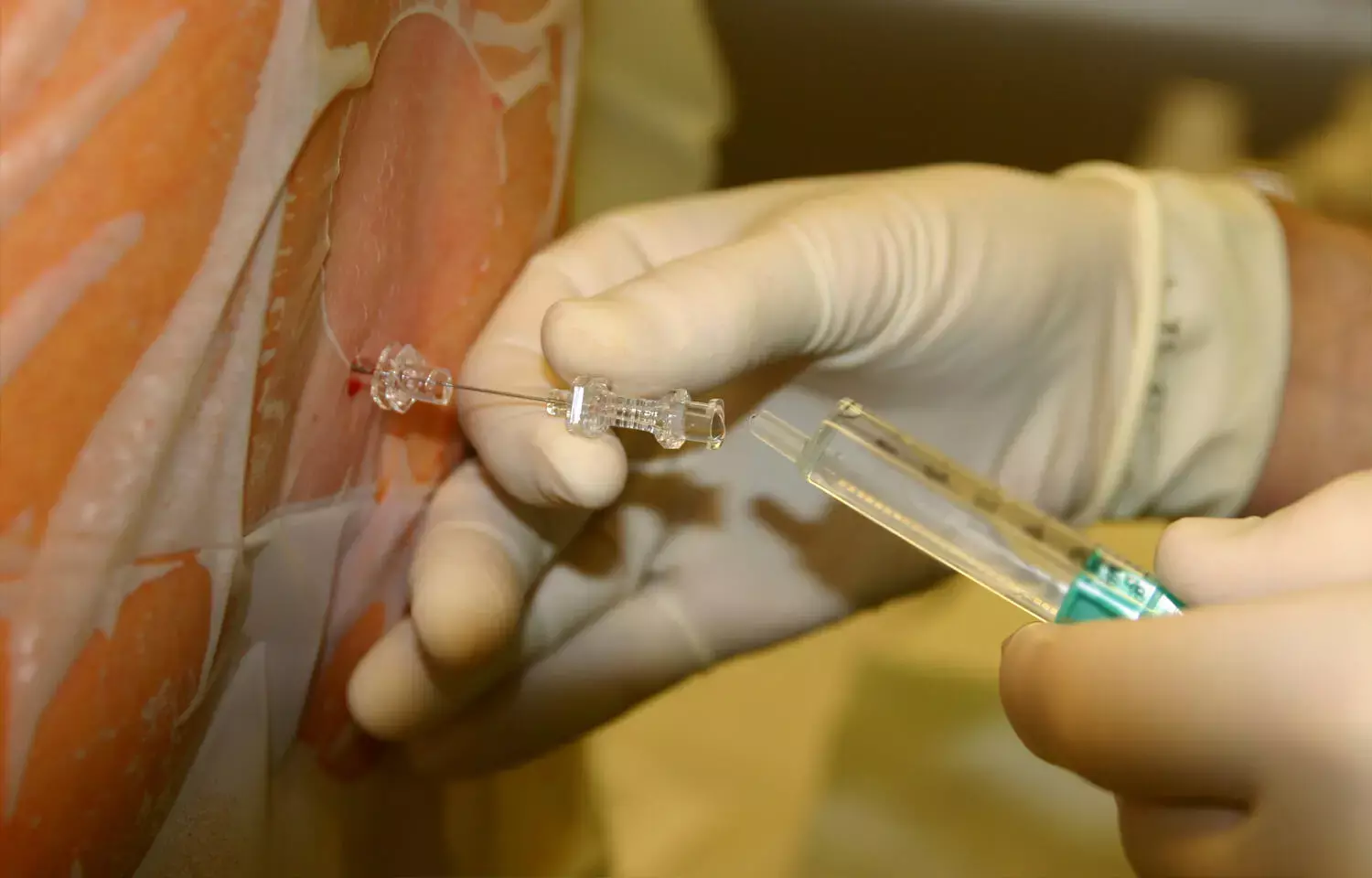- Home
- Medical news & Guidelines
- Anesthesiology
- Cardiology and CTVS
- Critical Care
- Dentistry
- Dermatology
- Diabetes and Endocrinology
- ENT
- Gastroenterology
- Medicine
- Nephrology
- Neurology
- Obstretics-Gynaecology
- Oncology
- Ophthalmology
- Orthopaedics
- Pediatrics-Neonatology
- Psychiatry
- Pulmonology
- Radiology
- Surgery
- Urology
- Laboratory Medicine
- Diet
- Nursing
- Paramedical
- Physiotherapy
- Health news
- Fact Check
- Bone Health Fact Check
- Brain Health Fact Check
- Cancer Related Fact Check
- Child Care Fact Check
- Dental and oral health fact check
- Diabetes and metabolic health fact check
- Diet and Nutrition Fact Check
- Eye and ENT Care Fact Check
- Fitness fact check
- Gut health fact check
- Heart health fact check
- Kidney health fact check
- Medical education fact check
- Men's health fact check
- Respiratory fact check
- Skin and hair care fact check
- Vaccine and Immunization fact check
- Women's health fact check
- AYUSH
- State News
- Andaman and Nicobar Islands
- Andhra Pradesh
- Arunachal Pradesh
- Assam
- Bihar
- Chandigarh
- Chattisgarh
- Dadra and Nagar Haveli
- Daman and Diu
- Delhi
- Goa
- Gujarat
- Haryana
- Himachal Pradesh
- Jammu & Kashmir
- Jharkhand
- Karnataka
- Kerala
- Ladakh
- Lakshadweep
- Madhya Pradesh
- Maharashtra
- Manipur
- Meghalaya
- Mizoram
- Nagaland
- Odisha
- Puducherry
- Punjab
- Rajasthan
- Sikkim
- Tamil Nadu
- Telangana
- Tripura
- Uttar Pradesh
- Uttrakhand
- West Bengal
- Medical Education
- Industry
Norepinephrine bests ephedrine in women undergoing C section with spinal anaesthesia: Study

China: Norepinephrine infusion is more effective than ephedrine bolus in patients undergoing C-section with spinal anesthesia, finds a recent study in Chinese Medical Journal. According to the study, norepinephrine fixed-rate infusion was more effective in preventing post-spinal hypotension and tachycardia with potential neonatal benefits.
Cesarean section for delivery has become quite common globally. In some cases, when there is a risk involved with the normal delivery it is a necessity while in other cases it can be a choice. Today, C-section has become a considerably safer procedure than it was decades ago. However, the choice of drug to counteract the side effects of spinal anesthesia required is still debated.
C-sections are performed under spinal anesthesia or general anesthesia. The use of spinal anesthesia comes with one key complication -- hypotension, or low blood pressure. To avoid this, vasopressors are administered. Vasopressors are drugs meant to raise the blood pressure to normal levels, as preventatives before giving the spinal anesthesia.
Ephedrine, the most commonly used vasopressor can have undesirable effects, some on the fetus, such as increasing fetal heart rate and causing fetal acidosis. Studies have also shown it to be slow acting. Recently, an alternative has begun to be employed: norepinephrine. Norepinephrine has shown fewer effects on the heart rate and is faster acting, making it potentially a better alternative to ephedrine. But to date, there are few head-to-head comparisons of the two.
Against the above background, Zhi-Hong Lu, Xijing Hospital, Fourth Military Medical University, Xi'an, Shaanxi, China, and colleagues aimed to compare the efficacy of norepinephrine infusion and ephedrine bolus against post-spinal hypotension in parturients in a double-blinded, randomized controlled clinical trial.
For this purpose, parturients scheduled for elective cesarean section were randomly allocated to receive norepinephrine infusion (0.05 μg·kg−1·min−1) just before spinal anesthesia continuing for 30 min or ephedrine bolus (0.15 mg/kg) just before spinal anesthesia. A rescue bolus (5 μg norepinephrine for the norepinephrine group, and 5 mg ephedrine for the ephedrine group) was administered whenever hypotension occurred.
The primary outcome was the incidence of hypotension within 30 min of spinal anesthesia administration. Secondary outcomes included maternal and neonatal outcomes 30 min after spinal block, and neonatal cerebral oxygenation 10 min after birth.
Out of the total 190 patients enrolled; 177 were included in the final analysis.
Key findings of the study include:
- Fewer patients suffered hypotension in the norepinephrine group than in the ephedrine group (29.5% vs. 44.9%).
- The tachycardia frequency was lower in the norepinephrine group than in the ephedrine group (OR: 0.22), and patients suffered less nausea and vomiting (OR: 0.28).
- There was no difference in Apgar scores and umbilical arterial blood gas analysis between the two groups.
- Neonatal cerebral regional saturations were significantly higher after birth in the norepinephrine group than in the ephedrine group (mean difference: 2.0%).
"In conclusion, norepinephrine fixed-rate infusion is more effective than ephedrine bolus for preventing post-spinal hypotension with potential neonate benefits," wrote the authors. "Further research is required to optimize the regimen for determining and maximizing norepinephrine's neonatal benefits."
Reference:
The study titled, "Comparison of two vasopressor protocols for preventing hypotension post-spinal anesthesia during cesarean section: a randomized controlled trial," is published in the Chinese Medical Journal.
DOI: https://journals.lww.com/cmj/Fulltext/2021/04050/Comparison_of_two_vasopressor_protocols_for.6.aspx
Dr Kamal Kant Kohli-MBBS, DTCD- a chest specialist with more than 30 years of practice and a flair for writing clinical articles, Dr Kamal Kant Kohli joined Medical Dialogues as a Chief Editor of Medical News. Besides writing articles, as an editor, he proofreads and verifies all the medical content published on Medical Dialogues including those coming from journals, studies,medical conferences,guidelines etc. Email: drkohli@medicaldialogues.in. Contact no. 011-43720751


